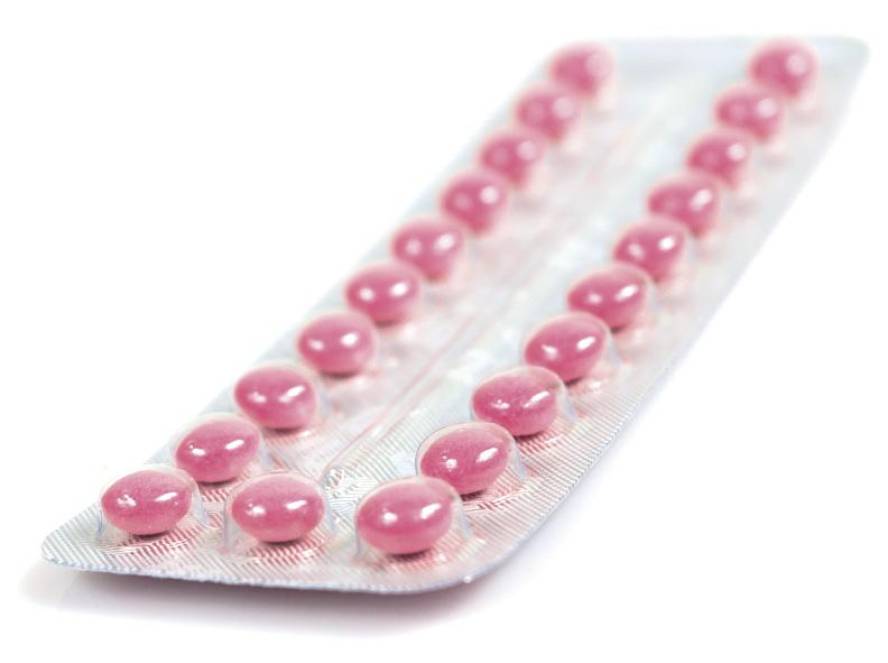2017/03/01
325. zenbakia

eu es fr en cat gl
Aparecerá un contenido traducido automáticamente. ¿Deseas continuar?
Un contenu traduit automatiquement apparaîtra. Voulez-vous continuer?
An automatically translated content item will be displayed. Do you want to continue?
Apareixerà un contingut traduït automàticament. Vols continuar?
Aparecerá un contido traducido automaticamente. ¿Desexas continuar?
Hormonal contraceptives and depression: the study of the relationship
Text created by automatic translator Elia and has not been subsequently revised by translators.
Elia Elhuyar
For fourteen years, researchers at the University of Copenhagen have collected data from more than a million girls and women aged 15 to 34. The aim of the research was to clarify whether there is any relationship between taking hormonal contraceptives and the tendency to depression. The answer was yes. Gynecologist Lorea Barinaga-Rementeria Zabaleta and sexologist Amaia Vázquez Eguzkitza have analyzed the data collected in the study and the conclusions obtained.

Ed. Warongdech/Shutterstock.com
The research, led by researchers from the University of Copenhagen, is the most extensive done so far in this area. In fact, each woman was analyzed for an average of 6.4 years, and when collecting and analyzing the data, variables such as the age of the user and the type of contraceptive were taken into account: its hormonal composition (combining estrogen and progestogen or only progesterone), dose and form of administration (oral pill, patch, subcutaneous implant, vaginal ring, UBETG or...
Two data were collected to measure the risk of depression: the first time they were diagnosed with depression and taking antidepressants. It should be noted that women who participated in the research did not suffer previous depression or psychiatric alterations.
The data were collected in the period 2000-2013 and analyzed in 2015-2016. The results, published in the Journal of the American Medical Association Psichiatry, highlighted that the relationship between taking hormonal contraceptives and depression for the first time diagnosed or contraceptive is especially evident among younger people (15-19 years) and, above all, among those who adopt purely progesteronic oral contraceptives.
According to the data obtained, more than half of the participating women (55.5%) took hormonal contraceptives. In total, 23,077 women were first diagnosed with depression and 133,178 were in charge of antidepressants.
By age, younger people showed the highest risk of taking antidepressants: for the first time the risk of using antidepressants was 1.8 among those taking combined oral contraceptives and 2.2 for those who only had progestogen. With age, the relative risk decreases.

Amaia Vázquez Eguzkitza. Sexologist and psychologist.
Sex hormones and emotions in interaction
Sexologist Amaia Vázquez does not question that hormonal contraceptives increase the risk of depression. In fact, this conclusion is also mentioned in other research you know and have also known in your clinical experience. Without reaching depression, he has pointed out that it is very common to darken the mood, “even have anxiety and lose libido”.
For Vázquez this has an explanation: “It is known that there is a close interaction between sex hormones and mood and emotions. Therefore, in this sense, the results obtained in this study are fully logical. Even in those who do not adopt hormonal contraceptives, this interaction is evident in physiological processes such as the menstrual cycle and menopause.”
In the case of the tendency to depression, Vázquez believes that the key can be serotonin: “It seems that the progesterone of contraceptives reduces serotonin levels. And the low level of serotonin is related to the risk of depression.”
On the other hand, Vázquez warns that hormonal contraceptives are sometimes not taken to prevent pregnancy, but to treat menstrual pain and other alterations. It is not favorable: “For me we are emotional beings. Emotions and the body are related to each other, so when these symptoms appear in a woman's body you have to analyze what happens to know why she has painful or irregular month. The application of hormones is not a solution.”

Risk of first-time contraceptives based on the type of birth control versus those who do not take birth control.
Increased risk for young people
It is not surprising for Vázquez that the youngest are the most at risk for depression: “In young people both the endocrine system and the brain are very upset. When girls start creating progesterone and estrogen, this hormone invades the brain. This invasion is necessary for sexual development, but there is a great imbalance. That is why adolescents are affected by such incidents. It is a revolution, biological and emotional, and if we add a hormonal contraceptive that can reduce serotonin levels, we open the door to depression.”
Therefore, Vázquez does not recommend hormonal contraceptives until age 21, that is, until the ovaries mature and the system is balanced. Now he is very concerned about the new contraceptive released from three months uninterrupted by the mouth: “I fear that if it expands we will see the rise of depression, anxiety…”
Other experts have highlighted, however, that the difference between receptors and non-contraceptives is minor and have questioned whether it is significant. However, it has aroused attention and there may be a boost to further research, as the researchers demand in their article.
Lorea Barinaga-Rementeria Zabaleta (Gynecologist): “Not only the composition of contraception, but also how to administer it seems to alter the risk of depression and start taking antidepressants”
Lorea Barinaga-Rementeria is a gynecologist who works in the consultation of an outpatient in Osakidetza. That is, it has a direct relationship with women and knows well the methods of contraception and its consequences. He is also a professor at UPV. We talked to him about the research carried out in Denmark.
Research shows a correlation between hormonal contraceptives and a tendency to depression. Is this result consistent with the data and clinical experience you have?
Yes, it matches. One of the side effects described in hormonal contraceptives, with both estrogen and progesterone and progesterone exclusively is depression. In addition to depression, there are other neurological-psychological symptoms: headache, irritability and decreased libido. This is described and known.
I'm not sure you've started taking pills and suffered from depression. Yes, however, these side effects: headache, irritability and decreased libido. Women tell us at the consultation from time to time.
What is done in these cases? Does the type of birth control change?

Related information
Each case must be analyzed. You have to see what side effects they are, what effects they have and what the woman wants. For example, if it's a headache, you try to change the type of birth control, remove hormones, and apply another type.
With other symptoms (irritability, decreased libido), we explained that they can be caused by contraception, and together with the woman we decided what to do: try another type of hormonal contraceptives (of different composition or route of administration) or change it to another hormonal.
On the other hand, it should be noted that in many cases the cause of the use of hormonal contraceptives is not only the contraceptive effect, but is considered as treatment in certain diseases. For example, when menstruation blood flow is excessive or menstruation causes severe pain, such as endometriosis. In these cases, if the other treatments have failed, the side effects and benefits generated by contraception should be weighed and made decisions.
What reasons can explain these effects or what mechanisms can explain the neurological effects of birth control hormones?
Sex hormones, estrogens and progesterones, present in contraceptives, are part of the axis called hypothalamo-pituitary-ovary. The hypothalamus and hypophysy are in the brain. And there is interaction between brain neurotransmitters and some hormones and estrogen and progesterone. For example serotonin, dopamine, prolactin... These are neurotransmitters and hormones that flow in the brain and act on the hypothalamo-hypophyse-ovary axis, while estrogens and progesterone also act on these neurotransmitters and hormones.
For example, some women, when they have a high level of stress or receive psychiatric treatments, run out of menstruation or have large menstrual irregularities. And the reverse effect can also occur, and we see it in two processes that occur naturally. At the time of menopause, in principle, estrogens and progesterone decrease and not always, but it is quite common for women to feel sad, more irritating… On the other hand, in the second phase of the menstrual cycle, within the premenstrual mix, it is quite normal that they are more irritating or more sad.

According to the study, the risk of depression is higher than that of oral contraception. Ed. FF
These examples show that there is a natural relationship between ovarian hormones and emotional state, i.e., estrogen or progesterone or both influences cognitive or emotional centers of the brain or both functions.
Although the risk of depression is reflected in the side effects of hormonal contraceptives, researchers say that this interaction should be further investigated. Do you share?
Yes, research is always necessary, not for research, but for an objective.
To begin with, this is an investigation that must be given value, no more nor less. It warns us of a side effect, the risk is not high, but it is there and seems to be higher in an age group (15-19 years). This data should be confirmed with more research.
On the other hand, another fact that this research highlights is that, not only the composition of contraception, but also the way to administer it, modify the risk of depression and start taking antidepressants. I mean txaplata and vaginal ring (estrogens and progesterone, taken from the skin or vagina), subcutaneous implant, and intrauterine implant or IUD (they only have progesterone and are taken subcutaneously or uterine). All of these methods present a higher risk than estrogen and progesterone in general and more than progesterone alone.

Research in Denmark has suggested that younger people are the most vulnerable to depression due to the use of hormonal contraceptives.
Both the patch and vaginal ring and progesterone IUD are relatively new as contraceptives. The new welcome route is the one with the most side effects. I think that must also be analyzed more. Because they have advantages. They greatly facilitate the good use of contraception. The patch is placed once a week, the vaginal ring once a month and the IUD and the implant are placed by gynecologists and have a validity of three years. That is very positive. However, if some side effects appear more frequently, it is necessary to investigate why and to what extent.
This study mentions that it may be due to hormonal doses. In fact, they all have a low dose. Another alternative is the influence of a different route than oral. Oral hormones are metabolized twice in the liver, but only once in other ways. Can this affect? It should be analyzed.
Do you think this new contraceptive, which is taken three consecutive months, can have a special risk?
I cannot answer this question exactly. I still have no experience with this contraceptive. It is low doses, taken verbally and seems to reduce the symptoms of premenstrual confusion, but, as we said, it is very recent and we still get data. I cannot answer him.
I think it is necessary to mention to women that there is that collateral effect, that the risk is low, when you can begin to feel and if you perceive it, with the consultation midwife or with us. In addition, considering that in young women the risk may be somewhat greater, we have to work more with them: analyze the background, see what situation they are in, be more careful with these new contraceptives in some cases and, with all this in mind, choose.
On the other hand, young people should be clarified that hormonal contraceptives do not protect against sexually transmitted diseases. They prevent pregnancy and not these diseases. That is, despite using hormonal birth control methods, if there is a risk of transmission or treatment of sexually transmitted diseases, they should also use condoms. It is important to avoid unwanted pregnancies and sexually transmitted diseases.











